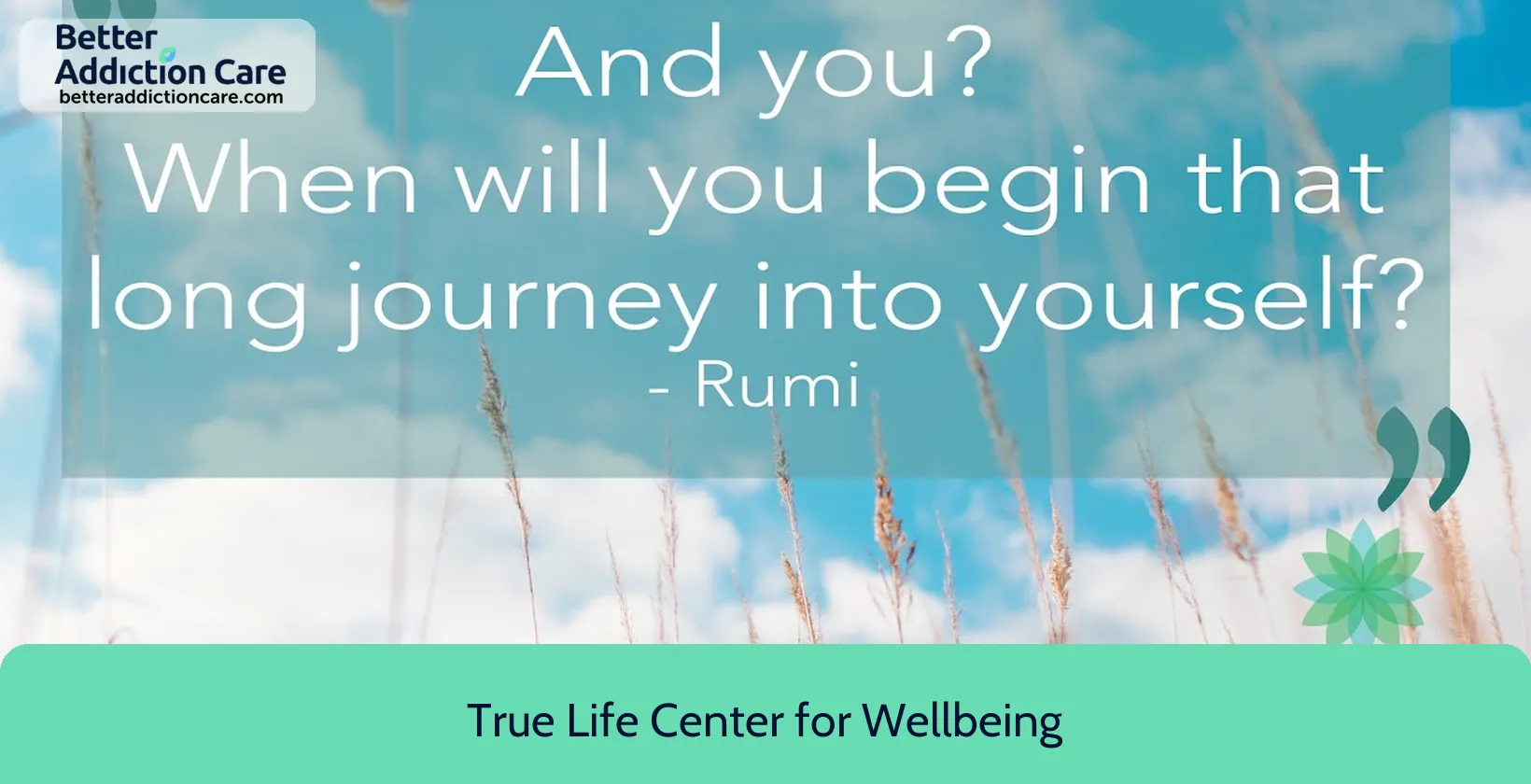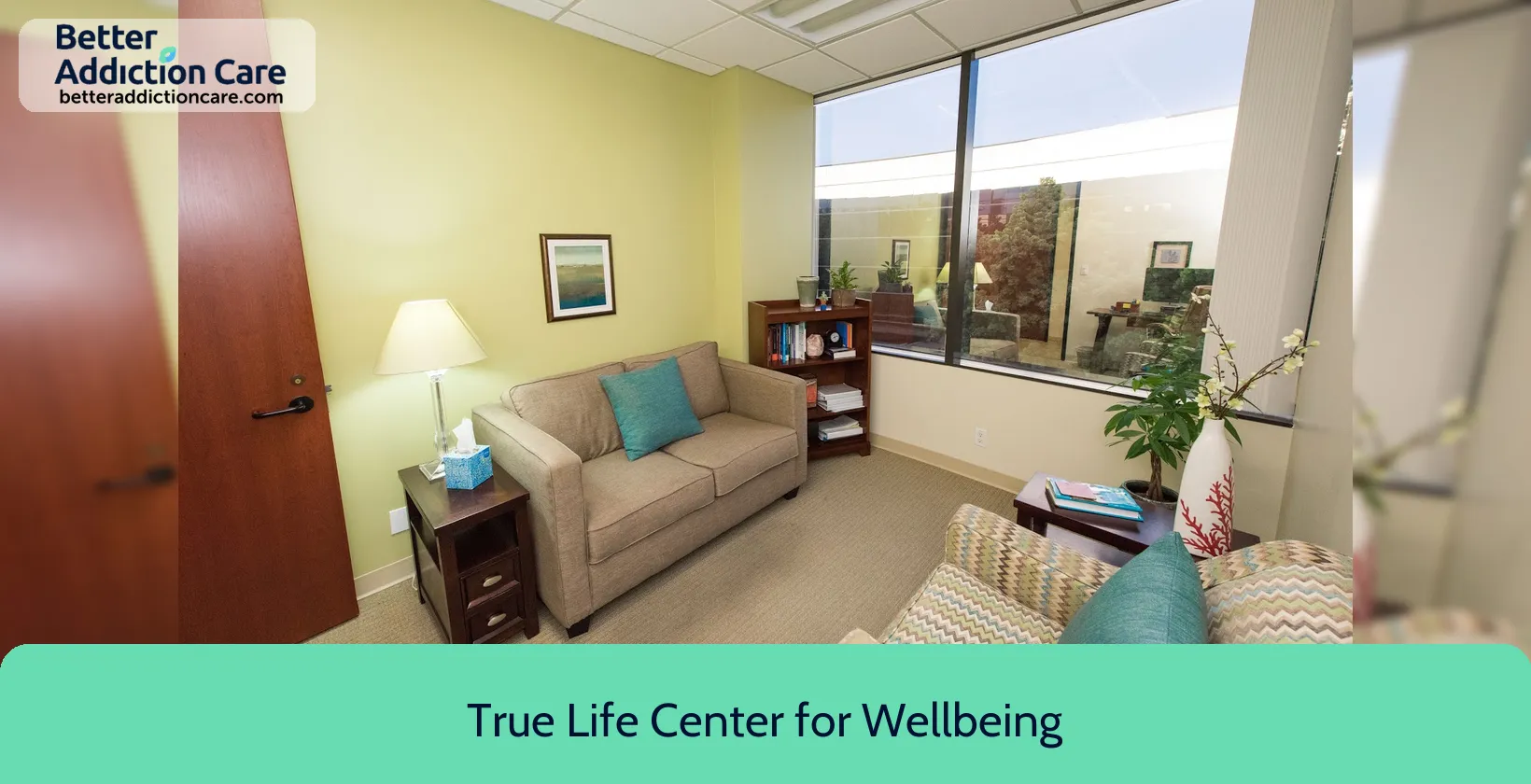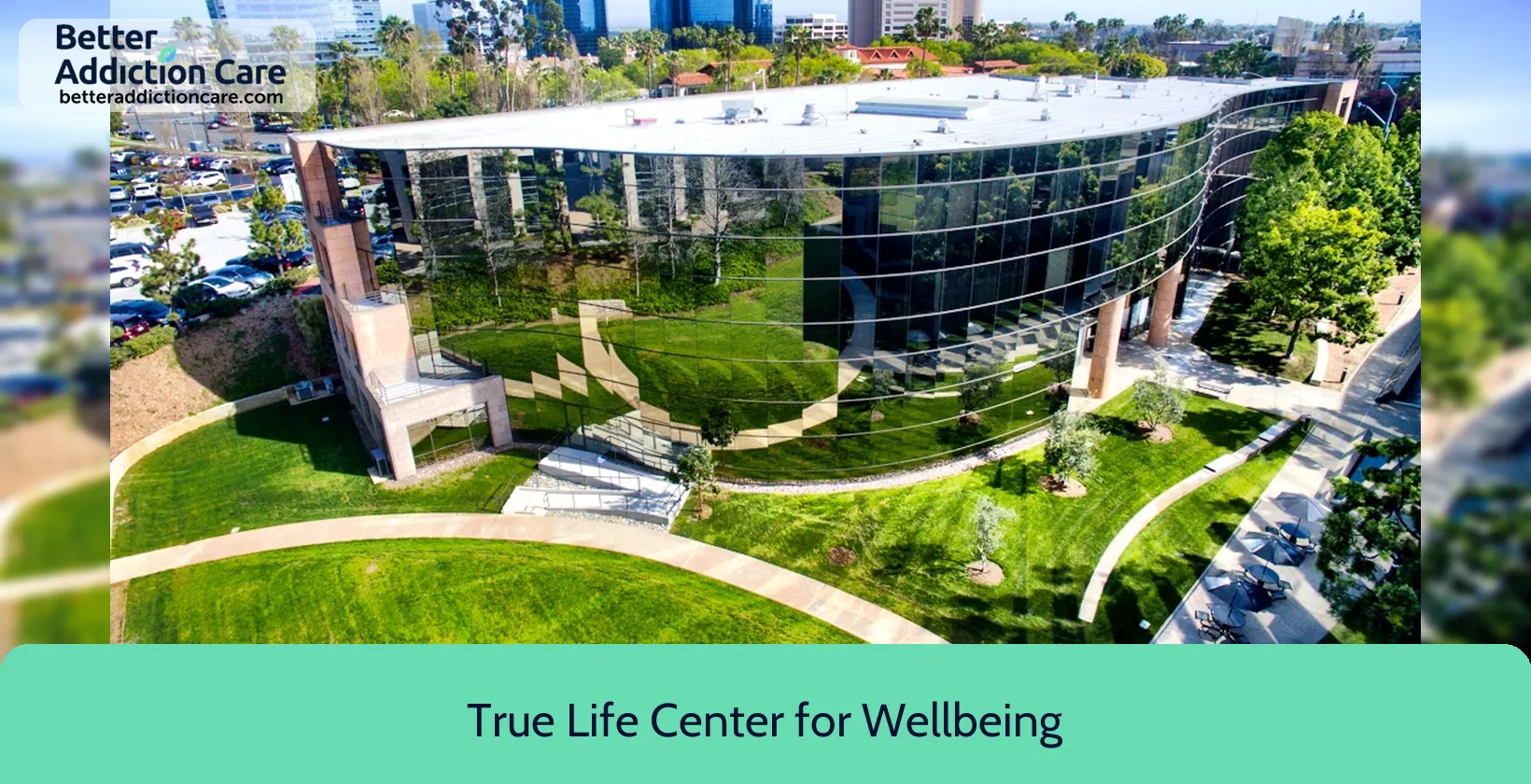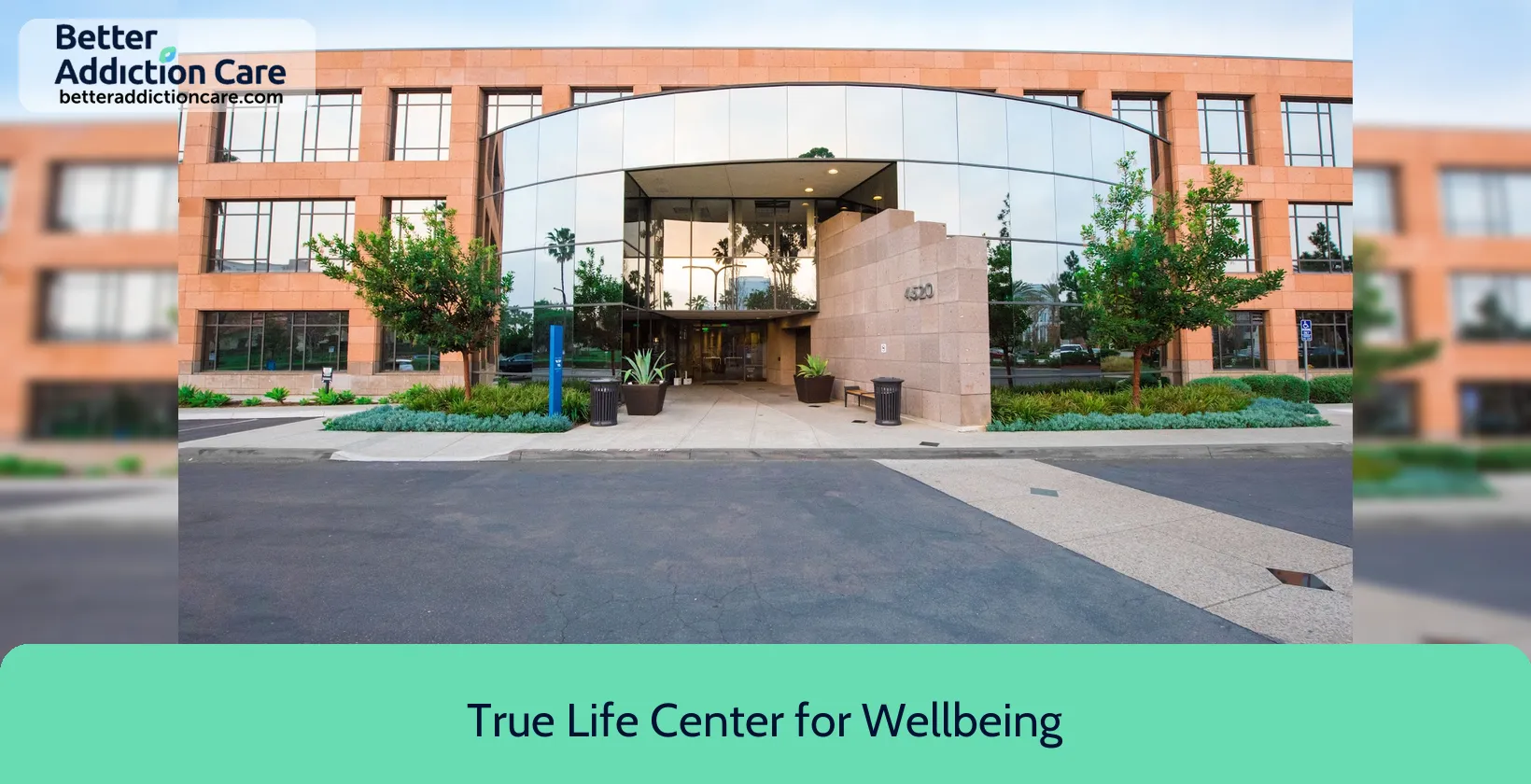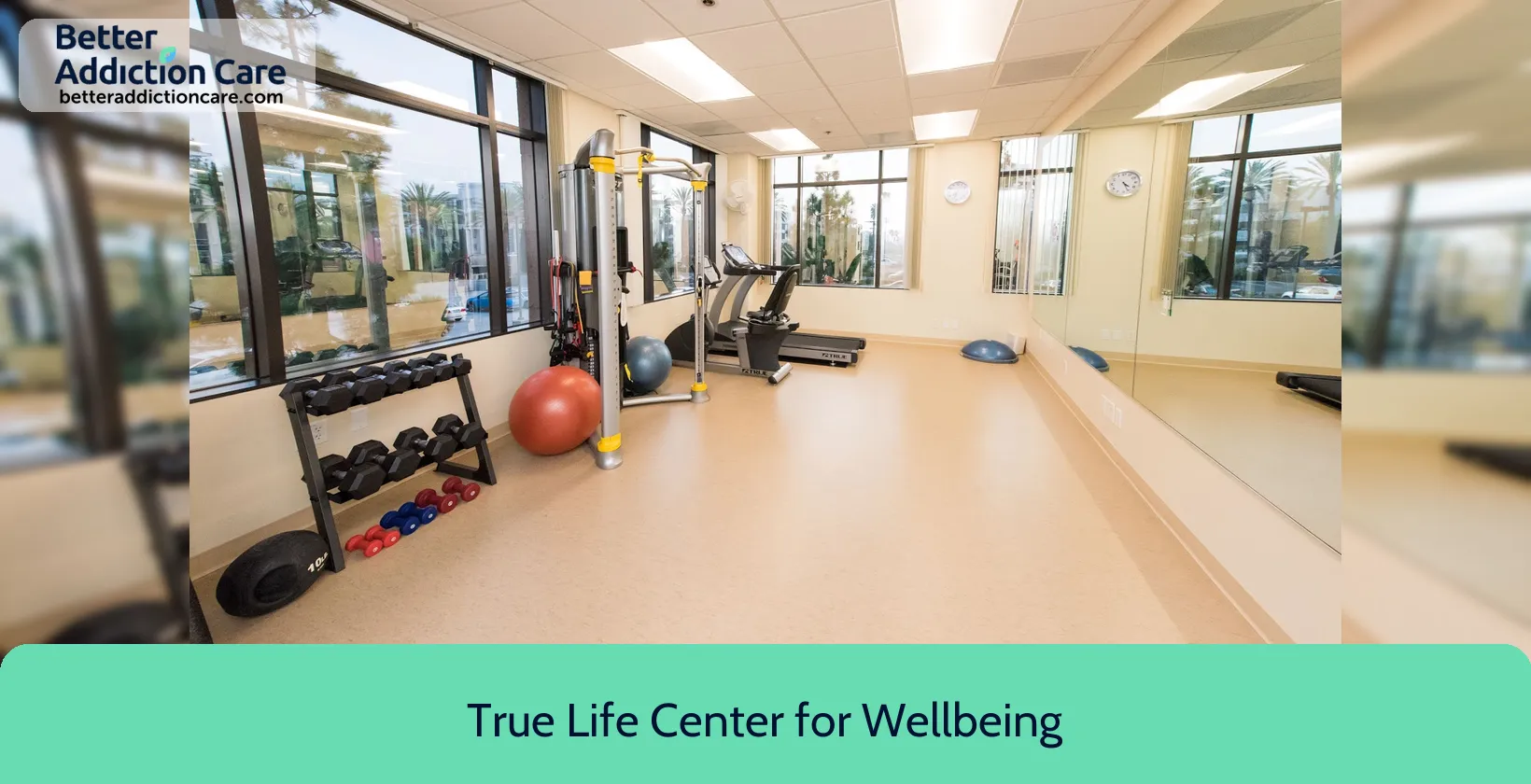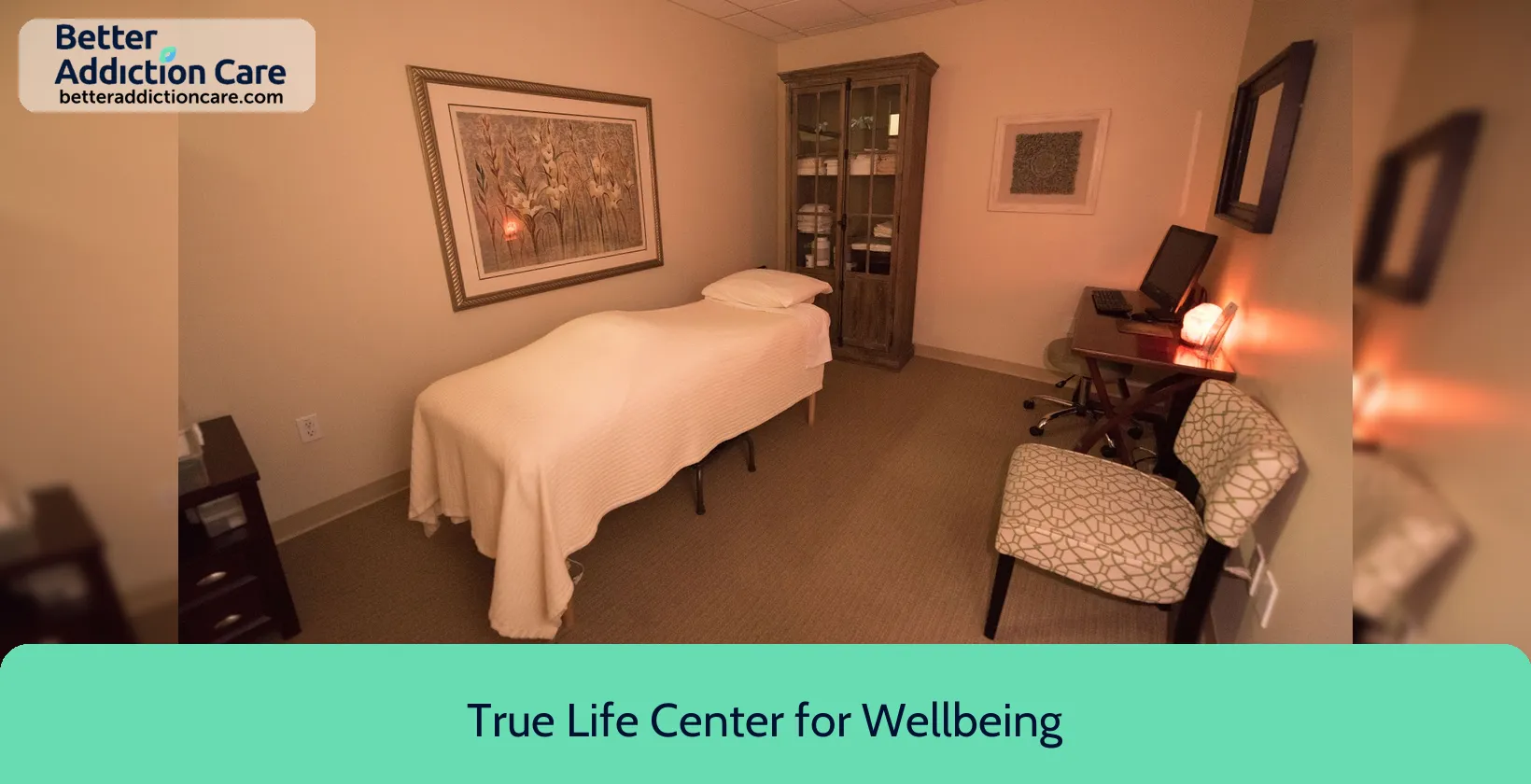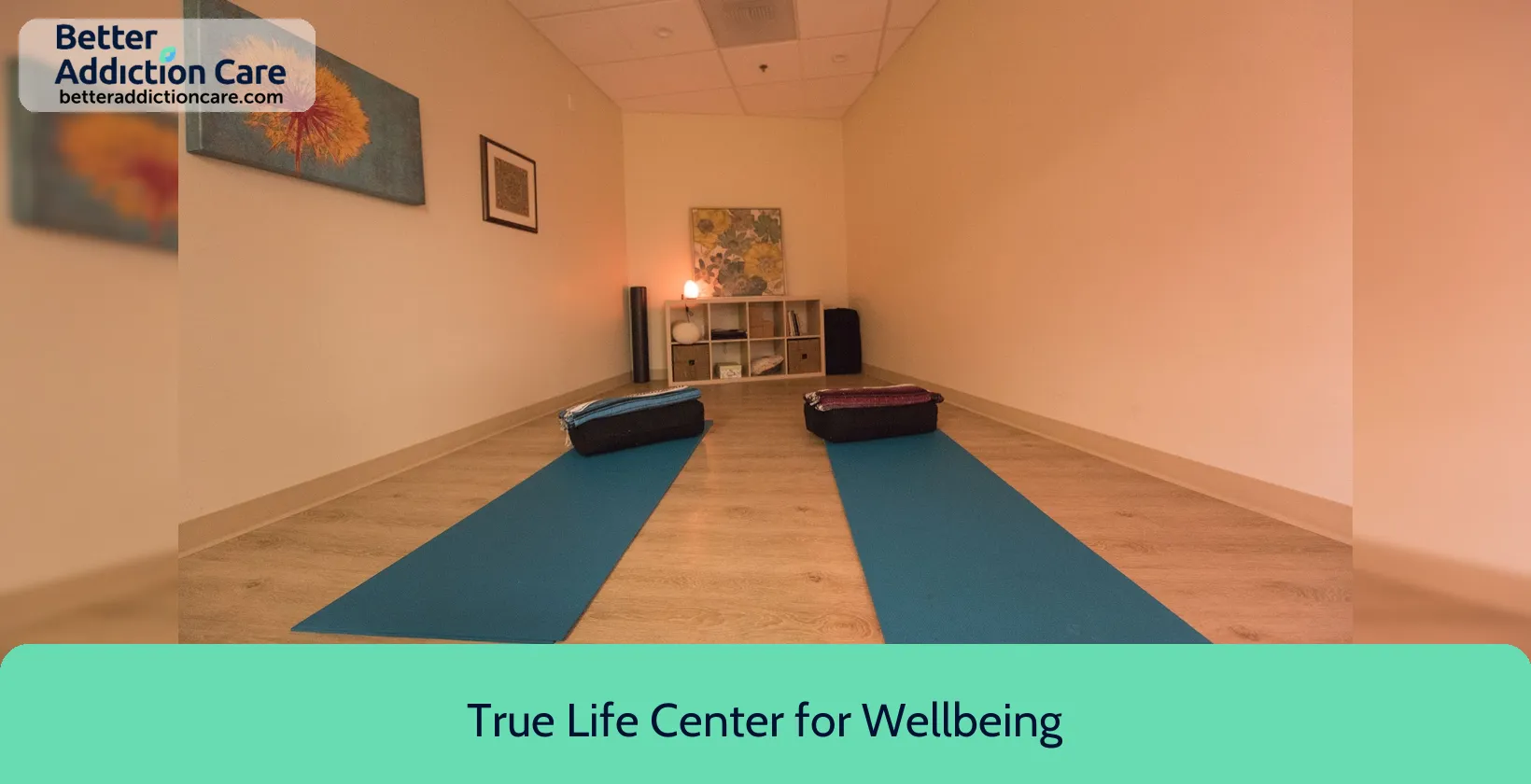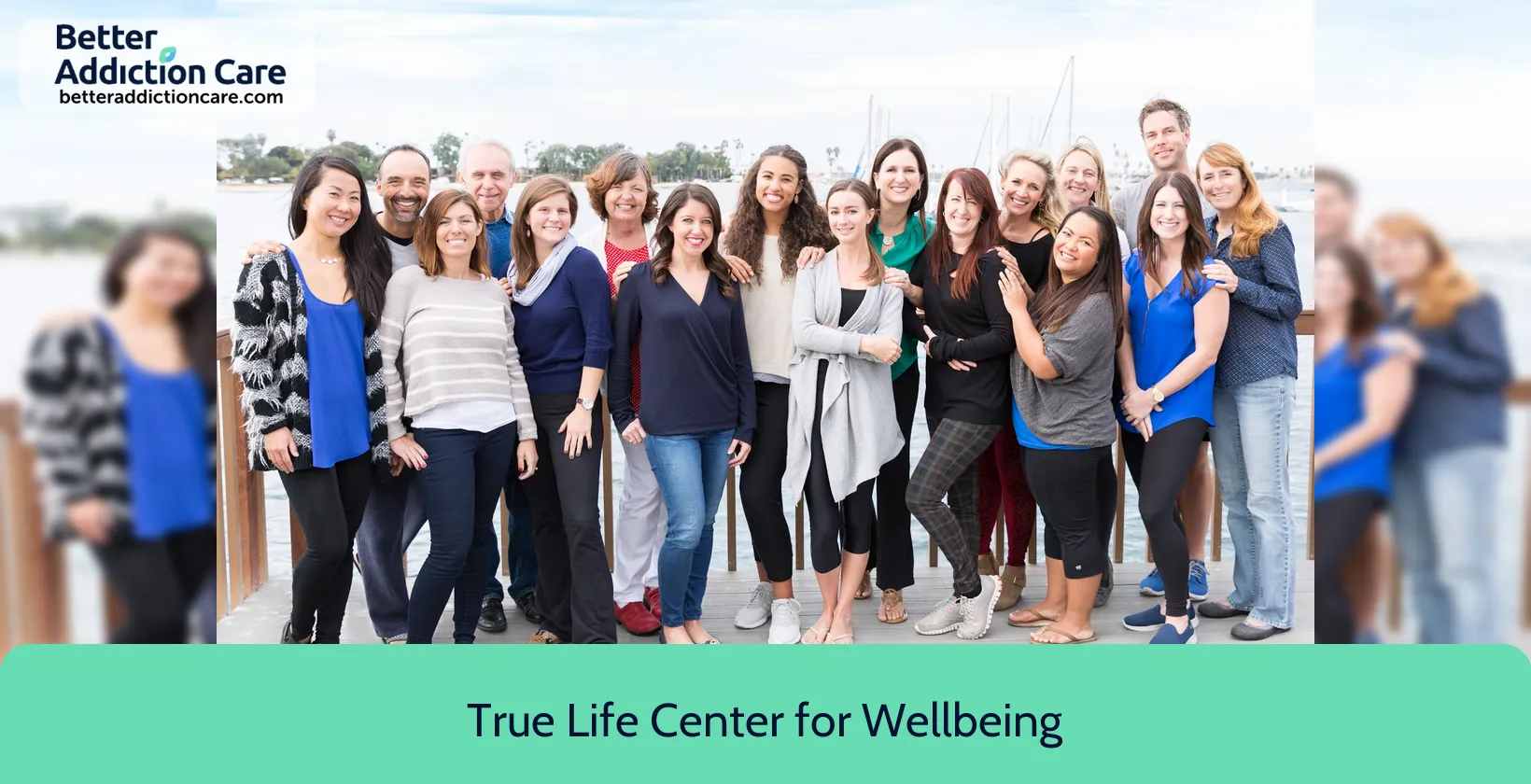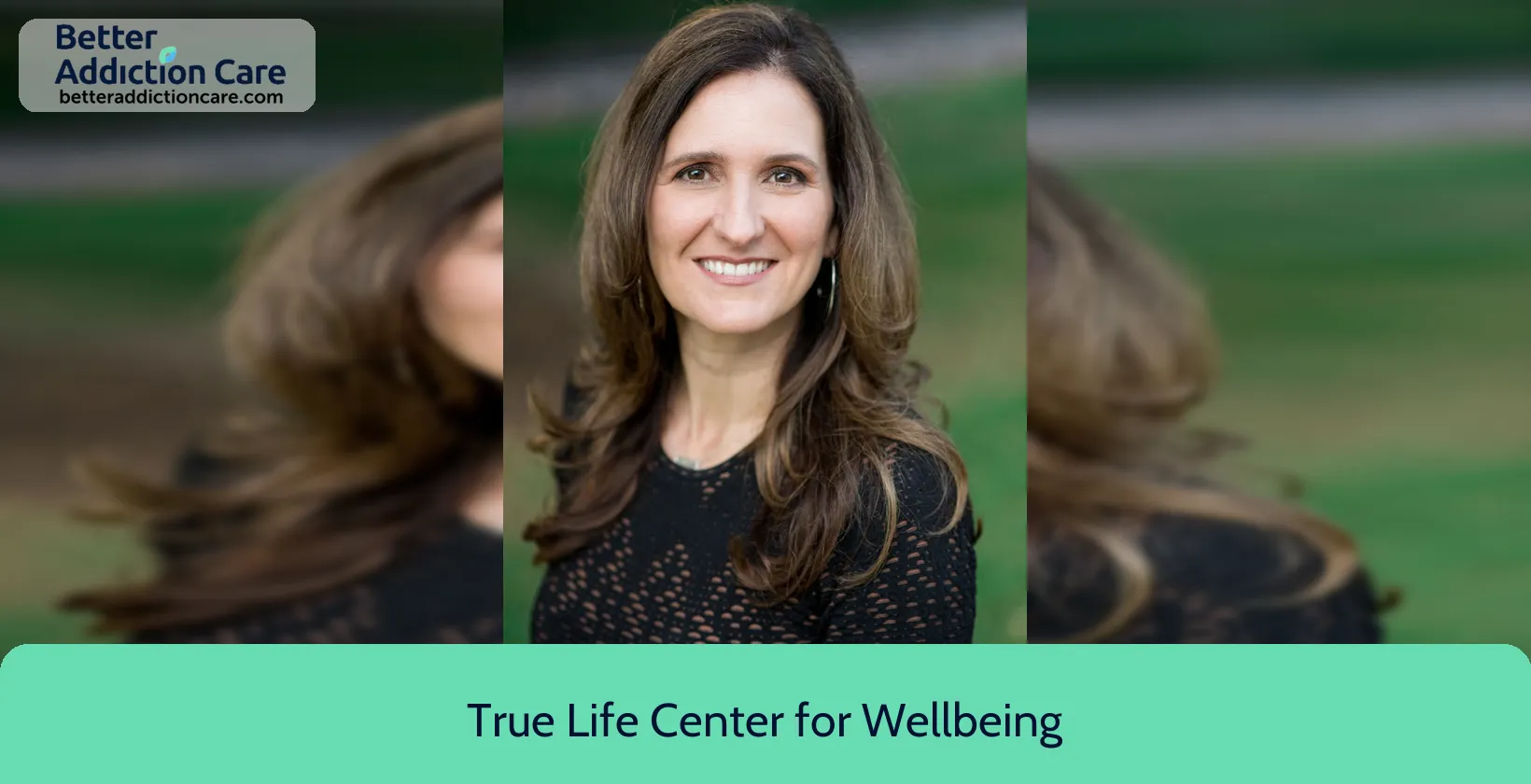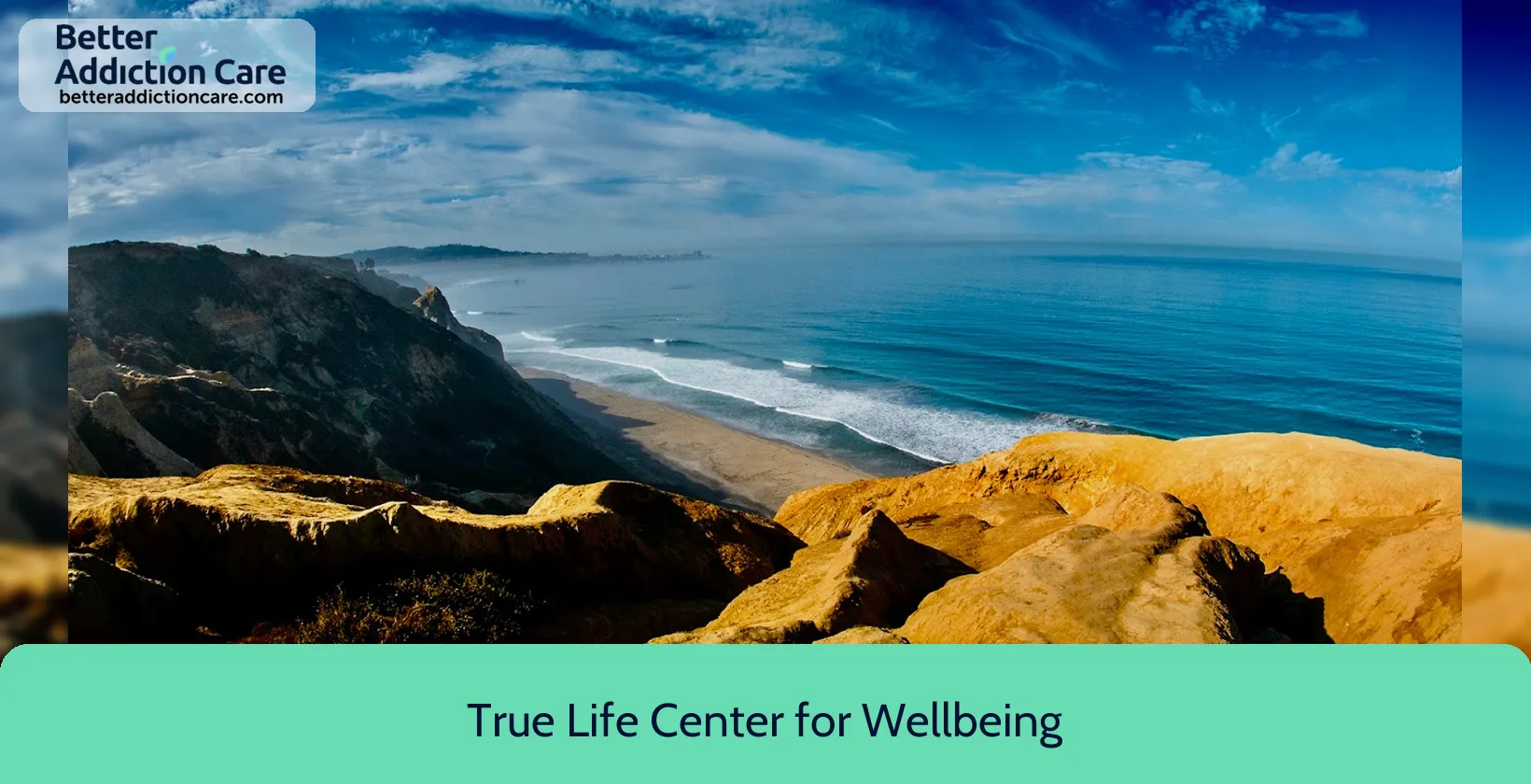True Life Center for Wellbeing
Overview
True Life Center for Wellbeing is an substance abuse treatment center that provides outpatient detoxification, for men and women from 18+ years of age. As part of their special programs, True Life Center for Wellbeing treats clients who have experienced trauma. To help patients achieve sobriety, True Life Center for Wellbeing provides intake assessments. Afterward, patients receive family counseling, individual psychotherapy, and cognitive behavioral therapy during treatment. True Life Center for Wellbeing is located in San Diego, California, providing treatment for people in San Diego County, accepting private health insurance and cash or self-payment.
True Life Center for Wellbeing at a Glance
Payment Options
- Private health insurance
- Cash or self-payment
Assessments
- Comprehensive mental health assessment
- Comprehensive substance use assessment
Age Groups
- Adults
- Young adults
Operation
- Private for-profit organization
Highlights About True Life Center for Wellbeing
6.77/10
With an overall rating of 6.77/10, this facility has the following balanced range of services. Alcohol Rehabilitation: 8.00/10, Treatment Options: 7.09/10, Drug Rehab and Detox: 6.00/10, Insurance and Payments: 6.00/10.-
Alcohol Rehabilitation 8.00
-
Treatment Options 7.09
-
Drug Rehab and Detox 6.00
-
Insurance and Payments 6.00
Treatment At True Life Center for Wellbeing
Treatment Conditions
- Mental health treatment
- Alcoholism
- Opioid Addiction
- Substance use treatment
- Co-occurring Disorders
Care Levels
- Detoxification
- Outpatient
Treatment Modalities
- Family counseling
- Individual psychotherapy
- Cognitive Behavioral Therapy
- Dialectical Behavior Therapy
- Group counseling
Ancillary Services
Special Programs
- Clients who have experienced trauma
Get Help Now
Common Questions About True Life Center for Wellbeing
Contact Information
Other Facilities in San Diego

6.68

6.71

6.65

6.65

6.59

6.74

6.74

7.02
DISCLAIMER: The facility name, logo and brand are the property and registered trademarks of La Jolla Addiction Healing Center, and are being used for identification and informational purposes only. Use of these names, logos and brands shall not imply endorsement. BetterAddictionCare.com is not affiliated with or sponsored by La Jolla Addiction Healing Center.
